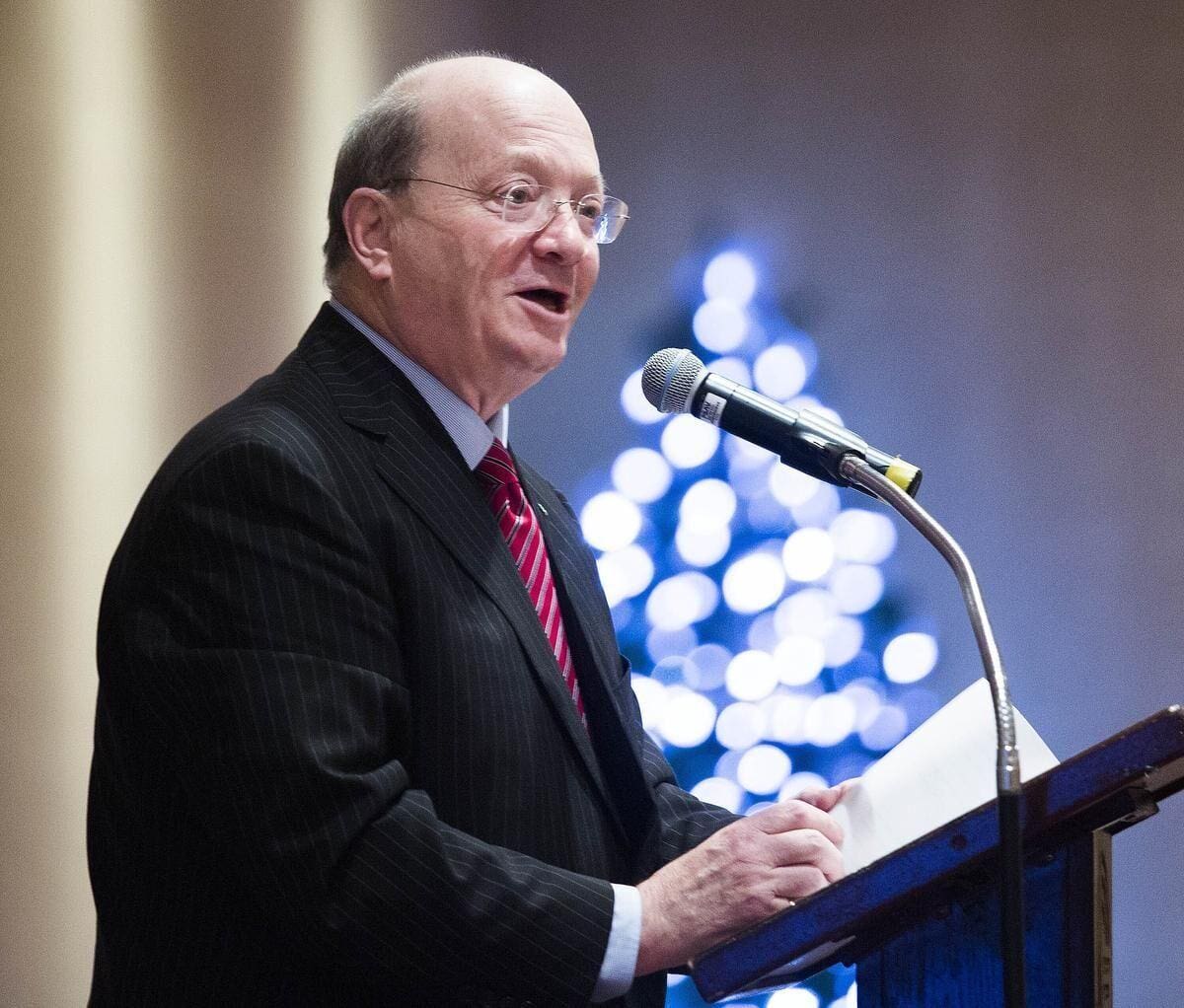By Jamie Swift, and Elaine Power
See original post here.
Four years ago, we interviewed Hugh Segal for a book on basic income. He was being treated for the disease that ended his life last week.
Typical of Hugh’s gracious generosity, the lifelong Conservative praised the medical team that had treated him, adding he was at peace with the prognosis he would likely have five to 10 years left. Like so many who’ve been praising this remarkable Canadian in the past few days, we are so very sorry that he didn’t make it.
Jamie last heard Hugh argue eloquently for a basic, livable income at a Hamilton public meeting organized by the Hamilton Roundtable for Poverty Reduction. That was in 2020 just as the pandemic hit.
Elaine’s first encounter with Hugh was when he came to social determinants of health class in 2010. He strolled up and down the aisles, telling over 300 students touching stories about living in poverty. He and fellow senator Art Eggleton had collected dozens of anecdotes while writing a Senate report. But some of the stories sprang from his personal experience growing up in a Montreal working class family.
His message hinged on the argument that an unconditional, livable basic income could remedy the gross indignities inflicted by poverty. First-year university students are a tough audience, but the power of his words, delivered with characteristic bonhomie, meant Hugh had the young students in the palm of his hand. It was the most powerful pieces of oratory Elaine had ever witnessed. No notes. Eloquent. Articulate. Provocative.
Years later, he described another big lecture hall, this one at the University of Dublin’s business school. He again came across as a lonely Conservative booster of basic income.
“My listeners,” he recalled, “looked bemused, sympathetic or curious — the way you might look when you see someone walk absent-mindedly into a telephone pole.”
In his delightfully self-deprecating manner, Hugh loved skewering the argument that solving poverty is somehow very complicated. Fixing poverty is simple. Just give people money while maintaining other vital social programs. People are poor, he always explained, because they just can’t afford to live a decent life.
He knew this because we’d already done it for seniors. In the early 1970s, as a young political staffer in the Bill Davis government, Hugh had a front-row seat when Ontario introduced a new program. The Toronto Star was featuring stories of elderly women eating dog food. It was the only protein they could afford. Hugh was instrumental in the implementation of what would become the Guaranteed Income Supplement. It saw the poverty rate for seniors plummet from 35 per cent to three to five per cent, making Canada an international leader in reducing seniors’ poverty.
The cheerfully stubborn social justice advocate played a pivotal role in the design of Ontario’s basic income pilot, implemented by Kathleen Wynne’s Liberals. It was killed prematurely by the Ford government in 2018. These Progressive Conservatives claimed the pilot project was unaffordable. Hugh described the cruel move by his own party as a reflection of
“the narrow ideology of fact free analysis.”
Hugh was a guiding light for the Canada’s basic income movement. He never lost hope that we would eventually do the right thing by implementing an income floor for working age Canadians. It would erase the shameful stain on our social fabric. We are deeply saddened he didn’t live long enough to see his dream come true. But we take heart from his passionate persistence.
Jamie Swift and Elaine Power are founding members of the Kingston Action Group for a Basic Income Guarantee and authors of “The Case for Basic Income: Freedom, Security, Justice.”




















